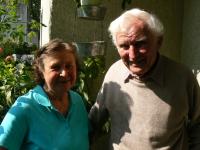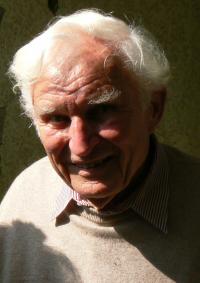I never wished to become a soldier

Stáhnout obrázek
Emil Klier as born on 3 July, 1926 in a village of Ottengrün (Otov in Czech) as one of three sons of Georg and Berta Klier. Following a sudden death of his father he got to children´s home, as him mother had to start working in a factory to support the family. In a children´s home he remained until school graduation. In December 1944 was summoned to Reicharbeitsdienst, where following an injury during army training he remained working in the office. In May 1945 he got to American war captivity and later to French and then to Austria. From there he legally got to Germany, where he stayed permanently. First he trained as a house painter and later moved to Bad Godesberg (today a city district of Bonn). In 1985 he visited his old native country for the first and the last time. He died on May 9, 2020.

